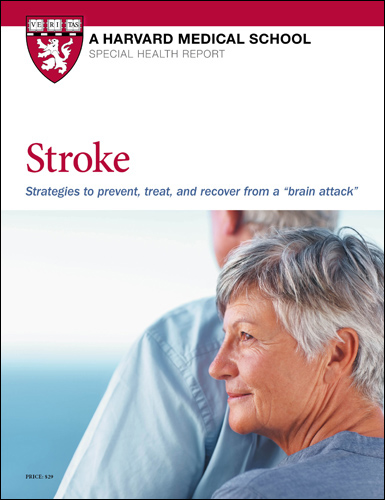Stroke risk rises in people who develop depression after a heart attack
Research we're watching
- Reviewed by Toni Golen, MD, Editor in Chief, Harvard Women's Health Watch; Editorial Advisory Board Member, Harvard Health Publishing; Contributor
People who have depression after a heart attack are nearly 50% more likely to suffer a stroke compared with those who don't develop the mood disorder, new research suggests.
The study, presented April 2, 2022, at a conference of the American College of Cardiology, analyzed records from more than 495,000 patients across the United States who had a heart attack between 2015 and 2021. About 10.5% were diagnosed with depression after their heart attack. One in six of these patients had been previously diagnosed with depression or another mental health disorder, while the others received a depression diagnosis only after the heart attack.
The heart attack survivors with depression also had higher rates of high blood pressure, diabetes, heart failure, chronic obstructive pulmonary disease (COPD), and coronary artery disease, compared with those who didn't develop depression. In addition, the depression patients had a higher average body mass index, and more of them were smokers. But researchers found the link between depression and higher stroke risk remained even after they adjusted the comparison to account for those factors.
Research findings presented at medical conferences should be considered preliminary until published in a peer-reviewed medical journal. Still, this study built on evidence from earlier studies on the association between depression and stroke after heart attack. The researchers recommended that people who have had both heart disease and depression follow up regularly with their doctors.
Image: © Maskot/Getty Images
About the Author

Maureen Salamon, Executive Editor, Harvard Women's Health Watch
About the Reviewer

Toni Golen, MD, Editor in Chief, Harvard Women's Health Watch; Editorial Advisory Board Member, Harvard Health Publishing; Contributor
Disclaimer:
As a service to our readers, Harvard Health Publishing provides access to our library of archived content. Please note the date of last review or update on all articles.
No content on this site, regardless of date, should ever be used as a substitute for direct medical advice from your doctor or other qualified clinician.

















